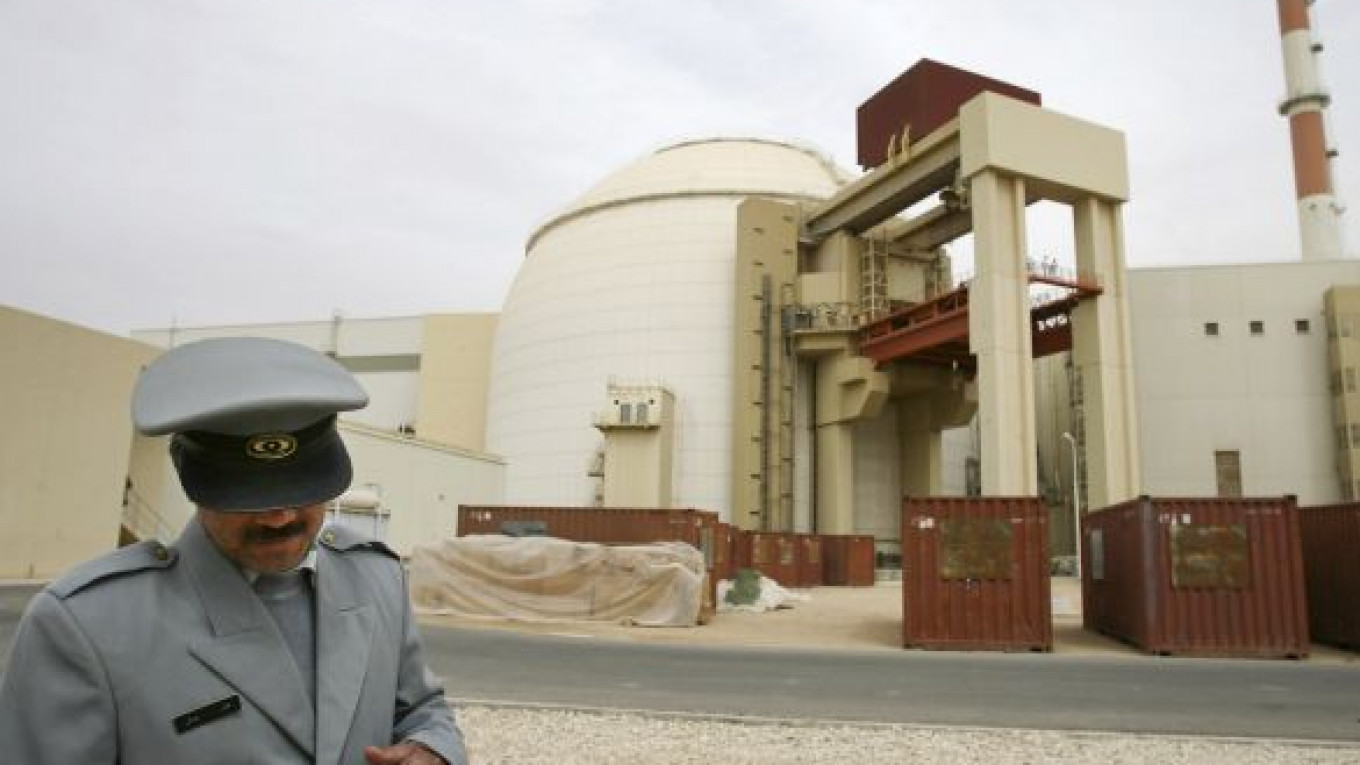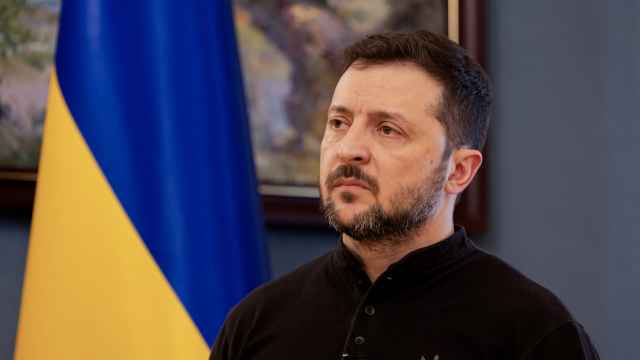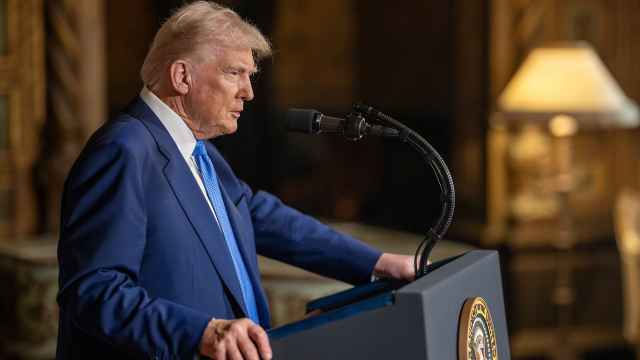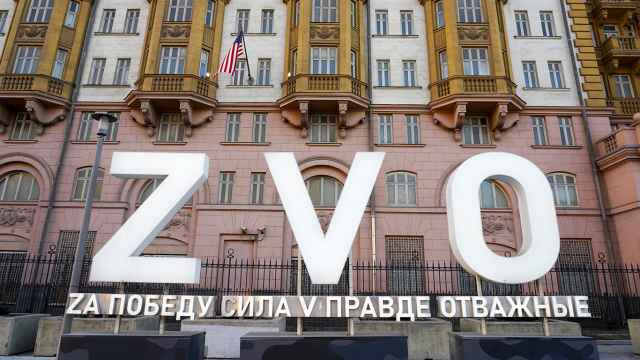A shattered cooling pump at Iran's only civilian nuclear-power reactor, forcing a shutdown during its initial startup phase, has renewed safety concerns about the hybrid Russian-German power plant on the Persian Gulf coast.
The 1,000-megawatt power plant at Bushehr combines a German design begun under the rule of Shah Mohammad Reza Pahlavi in the 1970s and Russian technology installed over the last decade. Safety questions have worried some nuclear-power experts and neighboring countries such as Kuwait, which is vulnerable in the event of a radiation leak because it is downwind about 275 kilometers.
Russian officials said in a statement Feb. 28 that they were removing the nuclear fuel to thoroughly clean the reactor core and the primary cooling system to remove metal shards left by the pump's failure. Shards as small as 3 millimeters can damage instrumentation and scrape the zirconium cladding that protects the core and prevents radiation leaks.
Russia's ambassador to Iran, Alexander Sadovnikov, was quoted Monday by Iran's state-run Mehr news agency as saying the delay was necessary because it's better "to prevent unwanted consequences rather than to regret it later and spend more time trying to make up for it."
Nuclear experts cite potential safety issues because of the hybrid design, Iranian nuclear inexperience, the Islamic state's reluctance to join international safety monitoring programs, and the unknown reliability of some of the original components.
Russian Decisions
"The rest of the world is depending on the Russian Federation for policing the nuclear safety of this reactor," said Mark Hibbs, an expert on Iranian nuclear issues at the Carnegie Endowment for World Peace. The pump failure "raises questions about the decisions the Russians made to move forward with an emergency coolant system that's 30 years old," he said.
Under United Nations sanctions for trying to amass enriched uranium that could be used in a nuclear bomb, Iran has requested only one safety consultation on Bushehr from the Vienna-based International Atomic Energy Agency.
After that visit last year, the IAEA warned that Iran's nuclear regulatory agency had "a shortage of staff" and the existing workers who were undertrained and underfunded. The UN group's mission was "neither an inspection, nor an audit," the agency said in a March 2 statement. The IAEA does monitor installation and removal of the reactor's nuclear fuel.
UN sanctions allow Iran to buy equipment for Bushehr, a light-water reactor that does not produce weapons-grade nuclear material. Russian engineers will remain at the plant as Iranians learn the ropes, said Sergei Novikov, a spokesman for Russia's state-owned nuclear builder, Rosatom, the plant's constructor.
Developed 'in Secret'
"This is a program largely developed in secret and their first ever of this size, and you don't develop a safety culture overnight," said Jim Walsh, a research associate at the Massachusetts Institute of Technology's Security Studies Program in Cambridge, Massachusetts.
The cooling-system pumps were "supplied to Bushehr in the 1970s and, under the current contract, Russia was obliged to integrate them into the project," Rosatom said in the Feb. 28 statement.
"To cut costs the Russians had to agree to use certain parts supplied by the Germans," said Bill Horak, chairman of the nuclear science and technology department at Brookhaven National Laboratory in New York, who studies Soviet and Russian-built reactors.
Inspections Needed
Bushehr also sits at the junction of three tectonic plates, raising concerns that an earthquake could damage the plant and crack its containment dome, or disrupt the electrical supply needed to keep it safe, said Dr. Jassem al-Awadi, a geologist at the University of Kuwait. Bushehr was hit with a 4.6 magnitude trembler in 2002.
Winds in the Persian Gulf blow from east to west, and coastal currents circle counterclockwise, meaning that Kuwait and Saudi Arabia would feel the effects of a radiation leak at Bushehr within hours, notes Sami Alfaraj, director of the Kuwait Center for Strategic Studies. And with the Gulf Arab states reliant for their freshwater on desalination plants that line the coast, long-term contamination of the Gulf could prove fatal.
"What are our concerns? Water and air, and these are the essence of life for everybody," Alfaraj said in an interview. "The Iranians have said so far 'trust us,' and it's quite difficult to trust them and the next thing is to trust Russian certification and it's very difficult to trust that."
Risks Low
Iran "has always given priority to the plant being in line with highest international standards," Ali Asghar Soltanieh, Iran's envoy to the IAEA, told the state-run Iranian Students News Agency on Feb. 26.
Technology has improved since the accidents at Chernobyl in Ukraine and Three Mile Island in Pennsylvania, making the risk from a modern reactor "extremely low," said James Acton, a physicist who works with the Carnegie Endowment in Washington. Horak also rates the chances of a catastrophic accident as low, noting that the German-built containment dome was built to resist a direct hit by a fighter jet.
Russia, which built the reactor, has perhaps the greatest incentive to ensure it operates safely, which is commercial self-interest, Hibbs said.
Atomstroiexport, the export arm of Rosatom, has nuclear power plants planned or under construction in 14 countries, from Armenia to Jordan. Plants are under construction in India and Bulgaria, according to its web site. A serious accident at Bushehr would bring a swift end to the entire industry, Hibbs said.
Iran’s ambassador to the International Atomic Energy Agency, Ali Asghar Soltanieh, asked Russia to start the Persian Gulf country’s Bushehr nuclear reactor on time. He spoke at a news conference in Vienna on Wednesday, Bloomberg reported.
“The Russians are supposed to fulfill their contractual obligation, complete the power plant and put it into operation,” Soltanieh said. “We hope that they would fulfill their obligation in order that the reactor and the power plant can be started up and produce electricity on time and as planned.”
A Message from The Moscow Times:
Dear readers,
We are facing unprecedented challenges. Russia's Prosecutor General's Office has designated The Moscow Times as an "undesirable" organization, criminalizing our work and putting our staff at risk of prosecution. This follows our earlier unjust labeling as a "foreign agent."
These actions are direct attempts to silence independent journalism in Russia. The authorities claim our work "discredits the decisions of the Russian leadership." We see things differently: we strive to provide accurate, unbiased reporting on Russia.
We, the journalists of The Moscow Times, refuse to be silenced. But to continue our work, we need your help.
Your support, no matter how small, makes a world of difference. If you can, please support us monthly starting from just $2. It's quick to set up, and every contribution makes a significant impact.
By supporting The Moscow Times, you're defending open, independent journalism in the face of repression. Thank you for standing with us.
Remind me later.






